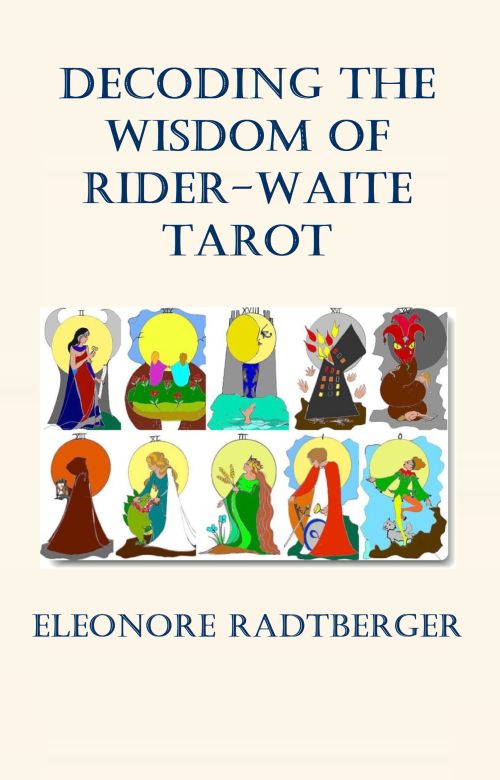
|
"What do you think?" Why this question annoys my husband
...and what I really want. When mindsets collide
When I ask my husband the question "What do you think?", I often get a quizzical look in return.

You'd think I'd asked him to write an essay on the history of sock knitting. When my husband replies with a curt "Nothing special" or an exasperated sigh, I feel rejected.
But why does this simple question upset him so much? And what do I, as a woman, really want from him?
First of all, I should make it clear that his reaction has nothing to do with me, and everything to do with the way men and women communicate. Men tend to give direct answers to specific questions. But when I ask him what he thinks, I usually assume it's a deeper discussion about our relationship, our future or everyday problems. This can quickly lead to misunderstandings.
My husband is a pragmatist. He thinks there is a clear answer to many questions and probably wonders why I so often ask his opinion on things that are obvious or that I have already decided. To him, the question often sounds like an invitation to debate – and that can be quite exhausting, especially when he just wants to enjoy his evening off. It feels like a "must" for him to get into an emotional discussion when he might just want to relax.
Men probably don't have the same emotional connection to issues that are important to us women. A simple question like "What do you think about our holiday plans?" could be a discussion about our mutual needs and wants for me, whereas for him it could be a choice between the beach or the mountains. When I ask for his opinion, he feels that I want more than just an answer. I want emotion, commitment and a dialogue that he doesn't always want. It can be frustrating for both of us.
And let's face it, I don't just want his opinion. I often want confirmation or positive feedback on my own thoughts or plans. Yes, I'm perfectly capable of making my own decisions, and I often have my mind made up before I even ask the question. But it just feels good when my husband says: "That sounds great!", or "I'll support you." In those moments, I'm not so much looking for a serious discussion as I am for a sense of reassurance. I want him to show me that he's on my side and that we're acting as a couple.
Women also often feel the need to share our thoughts and feelings in order to process what's going on in our lives. These conversations help us to see things more clearly and promote emotional bonding. When I ask "What do you think?" it's often just the beginning of a deeper discussion about ourselves, our lives and our dreams. I long to be heard and understood. I want to know where we stand and what my husband thinks about the things that are important to me.
Another issue related to this question is timing. If he's watching a football match or stressed about work, any question, however innocuous, becomes a stress test. It often feels like I'm trying to load him up with an extra parcel when he's already carrying a full bag. This naturally leads to frustration on our part. My question is then perceived as unnecessary and his defensive reaction intensifies.
Now you might ask: "So what can I do?" Well, I try to remember that we have different communication styles. Maybe I think about when I ask such questions – a little tact never hurts. Sometimes it's enough to make a casual comment instead of going straight for the jugular. I could also work on my wording: Instead of asking directly "What do you think?" I could say, "Let's talk a bit about the weekend." I'll see if that makes it easier for my husband to respond.
If I notice that my husband is stressed or that the topic is inappropriate, I can postpone the conversation. Relaxing over dinner will be much more enjoyable if I can postpone my desire to talk until we're both in a more relaxed frame of mind. After all, it's not just about what I want, it's about both of us being open to conversation.
"What do you think?" isn't just a question – it's an expression of my desire for closeness, understanding and support. I want my husband to be part of my thought process, but I also understand that sometimes the road there is full of stumbling blocks. A little more patience and understanding of our different levels of communication might help to turn these stumbling blocks into small hurdles. Perhaps my husband can even learn to see my question as an invitation to a mutual exchange – and I will try to put less pressure on the answer.
After all, we both want the same thing: a strong relationship where we can support, understand and grow together. And who knows, maybe laughing together and sharing our thoughts and fears will bring us closer than ever before. So his eye roll can turn into a big smile. And if we can do that, we'll be one big step closer. So here's to "What do you think?" – We're working on it!
"And what do you think?" When mindsets collide
When my wife asks me the question: "What are you thinking?", I often roll my eyes.

Imagine I'm relaxing on the sofa, watching my favourite soap or scrolling through my smartphone. Suddenly this question pops up: "What are you thinking?" And I can feel the tension in my shoulders. Why does this seemingly innocuous question elicit such a reaction from me?
For me, this question can feel like an exam situation. Suddenly I'm expected to put my thoughts into words, even when I'm in standby mode. It's like being woken up in the middle of the night and asked to solve a mathematical equation. My mind needs time to sort itself out. I also feel the subliminal pressure that my answer should make sense – after all, my partner asked for a reason.
My wife often asks, "What do you think?", a question that often makes me roll my eyes. As someone who has looked at this phenomenon from both the female and male perspective, I can assure you that there is a deep psychological background to this difference in communication, and I will try to shed some light on it using my own experiences and a little humour.
I am a great admirer of my wife. Izabel is not only intelligent and funny, she is also the queen of questions. She regularly asks me how I'm doing, and not just "How are you?", but "What do you think?" I found that charming at first. Everyone appreciates someone who is interested in their thoughts and feelings. Eventually, however, I realised that her questions often referred to situations that had nothing to do with the present moment. One evening we were having dinner and Izabel decided to dig a little deeper. "What do you think?" she asked as she sipped her wine.
I looked at her and saw the sparkle in her eyes as she waited for an answer. Confused, I stuttered something about the world being totally messed up, which obviously didn't satisfy her. Instead she smiled and said, "That's interesting, but what I really wanted to know was how YOU felt." My inner self screamed: 'Why don't you just ask me if I'm hungry?'
At some point I began to seriously wonder why women (at least in my experience) always ask "What do you think?" Yes, I know my wife has deep emotional intelligence, but the tugging at my brain is driving me mad. To be honest, there have been moments when I have felt trapped in a psychological experiment. And let me tell you, I'm not a psychologist and I don't feel like discussing my inner life while trying to follow the plot of an action film.
A friend of mine, Peter, who is in a similar relationship, had a very amusing theory: "You know, I think women think that our minds are like mobile phones. They've got constantly updated software that they like to explore, whereas we often just charge the battery from last weekend and use the occasional function." That made me laugh because it felt true.
And my friend Mario said: "It's like playing chess: they move the pieces and we just try to win."
But what's really behind this question? While men often prefer action – solving problems directly or making decisions quickly – women are probably more inclined to dig deeper to understand emotions and thoughts. Is this because of social conditioning? Are women encouraged to express their feelings and think about relationships, while men are encouraged to be stoic and deal with the problem immediately?
I once read that women are evolutionarily programmed to form and maintain social bonds. By asking questions, they are not only looking for answers, but also trying to create a sense of connection. Whereas men often get caught up in an action to achieve or solve something, for women asking questions means they want to connect emotionally.
Finally, I am not saying that all men and women are the same. Everyone has their own way of communicating. But the beauty of relationships is that we can learn from each other. For any man who has a woman who asks him for his thoughts, it might be worth trying a deeper perspective and taking the time to have these conversations. You might even learn something about yourself!
For my part, I've decided not to see the next "What do you think?"-question as a chore, but as an opportunity. Maybe it will help me to understand better what Izabel really thinks and feels. Maybe I don't always have to start with a deep philosophical reflection. Sometimes it's enough to say: "What do I think? I think I'd like more cheese on my pizza!"
That way we can laugh at the end of the day and even smile a little at ourselves. If we learn to see communication between the sexes as part of a bigger game that brings us all closer together, we can also deal with the "What do you think?" Maybe it's just part of the adventure that is a relationship. And maybe, just maybe, we'll find the courage to ask a question or two in return: "And what do YOU think of cheese?"
© "What do you think? Why this question annoys my husband and what I really want. When mindsets collide": A conversation between Izabel Comati and her partner, 01/2025. Image credits: frustrated woman and thoughtful man, both CC0 (Public Domain Licence).
– Books and pets: The pros and cons
– Bunker party. A vampire story by Ilona E. Schwartz
– The burden of the world: Emotional stress in uncertain times
Discover more articles! Use the search function:
English archive:
More reviews, book presentations and essays
2024/2025
German archive:
2024 |
2023 |
2022 |
2021 |
2020 |
2019 |
2018 |
2017 |
2016 |
2015 |
2014 |
2013 |
2012 |
2011 |
2010 |
2009
Become a writer for Pressenet! Write articles for our online magazine on trending topics such as best books to read, health and wellness, technology and gadgets, business and finance, travel and tourism, lifestyle and fashion or education and career. Info: Become an author
Sponsors and investors are welcome: If you found our articles interesting, we would be grateful for a donation. Please also recommend us to your networks. Thank you very much!
Sitemap About Privacy Policy RSS Feed





